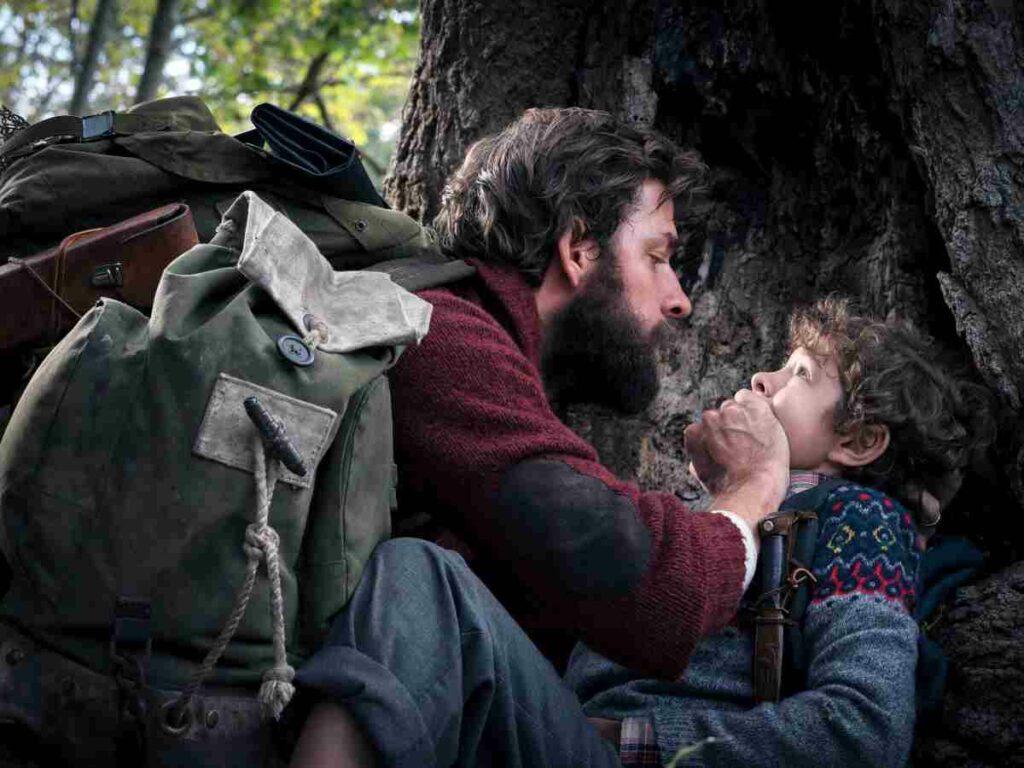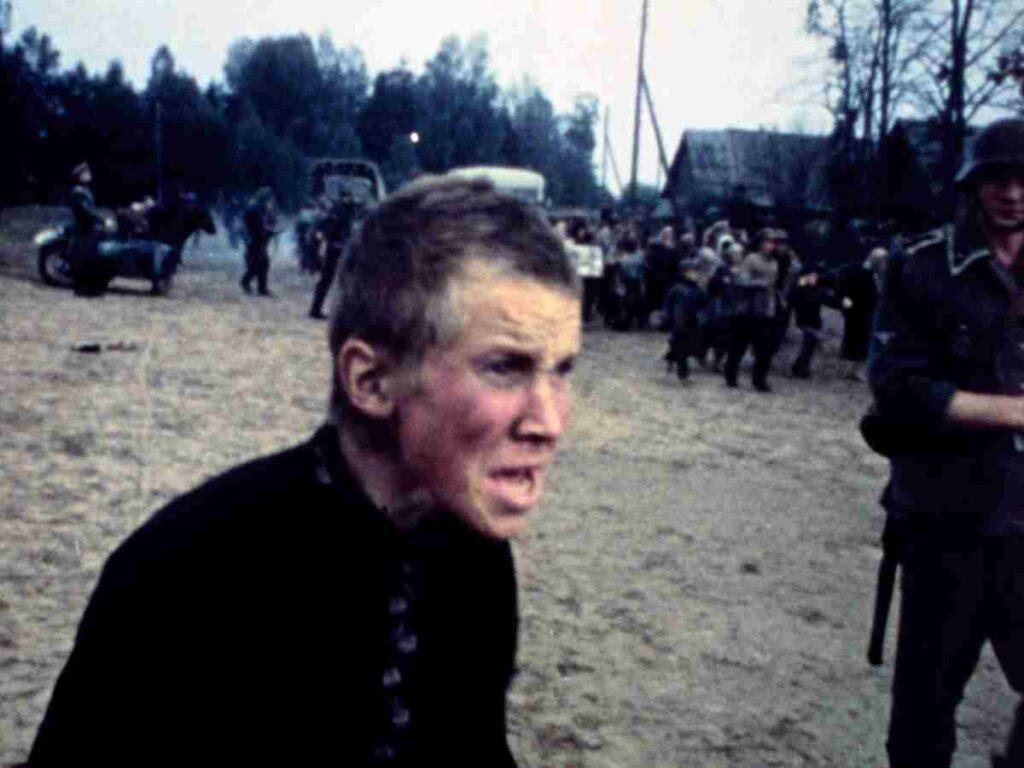“If there is heaven on earth, it is here, it is here, it is here,” said Amir Khusrao, while describing Kashmir. The site is one that has been frequently revisited by filmmakers, owing to its sheer beauty and cinematic potential. While it is a difficult task to make a film around something as sensitive as the Kashmir issue, several filmmakers have tried a hand at it. Cinema, as we know it, reflects society. The following films have truly come to give meaning to Khusrao’s words, while showing the Kashmir conflict in their backdrop.
1. Harud (2010)
Without delving into the histories of the insurgency, this film focuses on the effects it had on innocent participants. Using metaphorical and abstract overtones, director Aamir Bashir’s Harud is a delicately woven tale. He stays true to his own style. Set in the month of Autumn (which is the meaning of the word Harud), this film posits a question, ‘who does Kashmir belong to?’. The only question that has come to matter to the people of the valley over the years. The film narrates the tale of an average family in Kashmir, which is struggling to stay together after the loss of a son. The protagonist Rafiq’s unsuccessful attempt at crossing the border finally leads him to finding his brother’s camera, and the story unfolds from there. The film premiered at the 2010 Toronto International Film Festival.
2. Hamid (2018)
Set against the backdrop of the Kashmir conflict, the Aijaz Khan directorial is an adaptation of Amin Bhat’s play Phone No. 786. The film is a poignant tale told through the perspective of a child, who, upon losing his father, is determined to negotiate with Allah and bring him back. With a localised setting, yet highly universal appeal and emotionality, the film succeeds in arousing a wide range of emotions almost effortlessly. The film will surely remind you of Iranian cinema, that draws a lot of potency from the innocence of the child narrator. Punctuated throughout, with images that depict the varied facets of the Kashmir issue, the film has undercurrents of the macrocosm inherent in it. All in all, Hamid disarms the need for complexity when it comes to narratives surrounding the valley, and tells a simple story splendidly.
3. Shikara (2020)
Partly inspired by Our Moon Has Blood Clots by Rahul Pandita, the film traces the love story of a Kashmiri Pandit couple during the insurgency in Jammu and Kashmir. Set around the exodus of the Kashmiri Pundits from the valley, the controversial Shikara is undoubtedly, director Vidhu Vinod Chopra’s most personal film. Dealing with a sensitive issue with utmost sincerity, Chopra lays bare the many faulty lines and fleshes out an extraordinary narrative through the entry point of ordinary people. With exceptional cinematography and production design, that bring the spirit of the valley alive, this film shows a long forgotten Kashmir with realism. It underlines the importance of empathy and forgiveness to resolve the long-standing issue that has plagued the degrading ‘firdaus’ for a long, long time.
4. Yahaan (2005)
A love story set in the strife-torn Kashmir, Yahaan marked Shoojit Sircar’s directorial debut. A conventional story told unconventionally, the film unfolds with the aim of displaying the real as it is, without any exaggerated hatred. Without taking sides or being preachy, the director toys with deep-rooted issues in the war-torn land. The film rests on Jimmy Sheirgill’s shoulders, as it is his performance that drives the narrative. It is well shot, directed and executed, setting the tone and the mood right. With beautiful songs penned by Gulzar, the film’s music is rooted in emotion. Naam Ada Likhna rules our hearts, even today. Giving it the extra sheen, the blue-hued colour palette lends beautifully to the film’s dark milieu.
5. Tahaan (2008)
Directed by Santosh Sivan, the film follows the journey of a little boy whose donkey goes missing, leading him to take upon a journey into the hills to find the creature. The fact that the film involves a child narrator, much like Hamid, will make it evident that it stylistically draws from Iranian cinema. At the end, it’s a gripping tale of the eponymous Tahaan’s innocent encounter with terrorism, as he picks up a grenade following the footsteps of the people who promise to get his dear pet back. It is totally a Santosh Sivan film for its sense of visuals and aesthetic.
6. Inshallah Football (2010)
Inshallah Football documents the journey of an aspiring footballer who is denied a passport by the Government of India owing to the fact that he is the son of an ex-militant. Directed by Ashvin Kumar, the film is a humane attempt at portraying the struggles of a child who finds hope in a sport, but is denied opportunities owing to his origin. Tehelka Magazine notes ‘Kumar’s camera catches the irony of Kashmir’s physical beauty, the claustrophobia of militarisation, the dread and hopelessness of children born into war and the nuances of relationships.’ A tale of many passions, this one captures the idea of consistently limiting opportunities for the people of the valley owing to the stigmatisation under the garb of security.
7. Shaurya (2008)
Shaurya is an adaptation of the Tom Cruise and Jack Nicholson starrer, A Few Good Men. But where the film Indianises itself is by spatialising the premise in the heartlands of Kashmir. Although less of the battle happens outside in the valley, and more in the courtroom, the film is contextually rooted in Kashmir. It represents the men-in-olive with realism, and also deals with the issue of Islam and terrorism with sensitivity. A cerebral experience overall, the film is embellished with exceptional performances by Kay Kay Menon, Javed Jaffrey and Rahul Bose.
8. Haider (2014)

Set in 1995 Kashmir, Haider is an adaptation of William Shakespeare’s Hamlet and Basharat Peer’s Curfewed Night. Embellished with brilliant performances by Kay Kay Menon, Shahid Kapoor, Tabu and Irrfan Khan, the film revolves around Haider, who returns to his homeland to find out about his father’s disappearance. One of the finest mainstream films on Kashmir, it outrightly makes the personal and political coincide, and touches upon the oedipal unabashedly. Dealing with the ambiguous nature and the sheer magnitude of the literary text, Hamlet, director Vishal Bhardwaj displays extreme finesse in his craft. Exquisitely shot and beautifully scored, the audio and the visuals come together in the film in order to create a sensory experience. Co-written by Bhardwaj and Basharat Peer, the screenplay captures Kashmir elegantly. When Ghazala says, ‘Disappeared logon ki biwiyaan aadhi bewa kehlaati hain, half widows’, it paints a gritty picture of the Kashmir conflict.
9. Half Widow (2017)
Having travelled across film festivals and received several awards, this Danish Renzu directorial follows Neela’s journey upon losing her husband to abduction. The film encapsulates the many dilemmas faced by the woman, who experiences holding on and letting go in equal measure, upon the loss of their beloved. The poignancy of the narrative lies in the duality of never recovering from the loss. The film adopts an approach of realism, from use of the local language to the simple dialogues that are true to the region. Due to the absence of theaters in Kashmir, the film was screened at the Sher-i-Kashmir International Conference Centre. With flawless performance by Neelofar Hamid in the lead role, the film succeeds in showing the predicament of the ‘aadhi-bewa’, (half widow), the term commonly used in the region, as remarkably as in Haider.
10. Roja (1995)
Directed by the master storyteller Mani Ratnam, this one needs no introduction. The film follows the trajectory of a woman from Tamil Nadu, who tries to find her husband, who gets abducted by Kashmiri militants during an undercover mission. Thematically, the film revolves around the relationship between Savitri and Satyavan of the Hindu epic, Mahabharata. Besides, it was revealed in an interview by Mani Ratnam, that the film was inspired from a news article. The film also marked A. R. Rahman’s cinematic debut. It was critically well received and went on to win several awards, most notably three National Awards including the Nargis Dutt Award for Best Feature Film on National Integration. This masterpiece will keep you riveted whilst revealing the political nuances of the many conflicts in Kashmir.
11. Valley of Saints (2012)
‘If a place on the earth can lay claim to paradise, it is Kashmir, and if there is a place that embodies all the dark consequences of humanity, it too is Kashmir. It is a special land of forced contradictions.’ says critic Roger Ebert when he talks about Valley of Saints. Blurring the lines between fiction and documentary, and blending the two into its fold, this film narrates the story of a young tourist boatman named Gulzar. Valley of Saints is the first film set in the endangered lake communities of Kashmir. A love traingle on one hand, and an investigation of political complexities on the other; this film provides a peek into the many layers that govern the Kashmir conflict. What is the most heartwarming part about the film is its depiction of a rare kind of friendship, that which transcends the meaning of love.
12. Inshallah Kashmir (2012)
Ashvin Kumar’s documentary is a presentation of rare testimonials that preserve the coming of age story of the ordinary people of the valley. The film successfully crossed the many hurdles of obtaining the priceless experiences of the people of Kashmir. Capturing and emboldening the voices of the people of the region, the filmmakers succeeded in giving us an honest tale. The film won the National Film Award for the Best Investigative Film. It seeks to question the nature of a secular, democratic republic, that, which leads to devastate the lives of many. Every side of the larger story is given a space in the film, to breathe and to let their emotions flow. The matter-of-fact attitude of the residents while narrating the horrific events in their lives speaks much about how they are conditioned into accepting the unacceptable.
There we are! Here the best films on Kashmir in Hindi cinema. I’ll leave you with this piece of poetry by Agha Shahid Ali, titled ‘The Blessed Word : A Prologue’
‘Let me cry out in that void, say it as I can.
I write on that void: Kashmir,
Kaschmir, Cashmere, Qashmir, Cashmere, Qashmir, Cashmir, Cashmire,
Kashmere, Cachemire, Cushmeer, Cachmiere, Cašmir. Or Cauchemar in
a sea of stories? Or: Kacmir, Kaschemir, Kasmere, Kachmire, Kasmir.
Kerseymere?’





1 thought on “12 Films Around The Kashmir Issue That Are An Essential Watch”
Comments are closed.